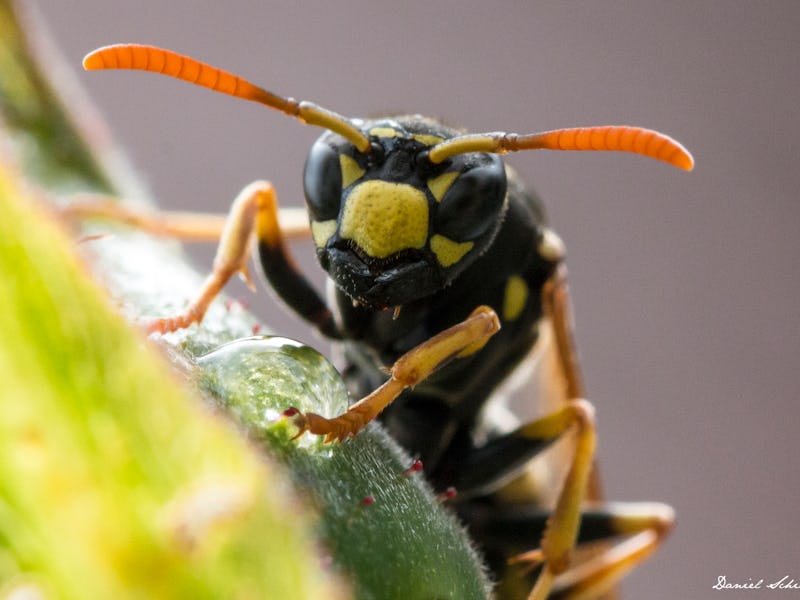Wasp Venom May Become a Cancer Treatment
A potentially lethal substance offers hope.

Researchers from São Paulo State University are testing a radical new cancer treatment: wasp stings. According to the BBC, the polybia paulista’s venom contains the MP1 toxin, which attacks its victims’ cells. Through mice testing, the team found that healthy cells are safe from the MP1 because it targets fatty molecules on the outside of cancer cells. The healthy cells on the inside are supposedly untouched and free to escape the cancer cells, too, through holes created by the MP1’s exterior destruction.
If it works, the wasp method could be a huge step in progressing cancer treatment. Altogether, it’s not entirely different from chemotherapy, with the patient receiving a foreign cell-destroying substance. Co-researcher Dr. Paul Beales says it may even lead to “new combination therapies, where multiple drugs are used simultaneously to treat a cancer by attacking different parts of the cancer cells at the same time.” The wasp vevom treatment is still far from a certainty to work with humans. At the very least, though, it indicates that scientists are willing to look for cures through more natural remedies.